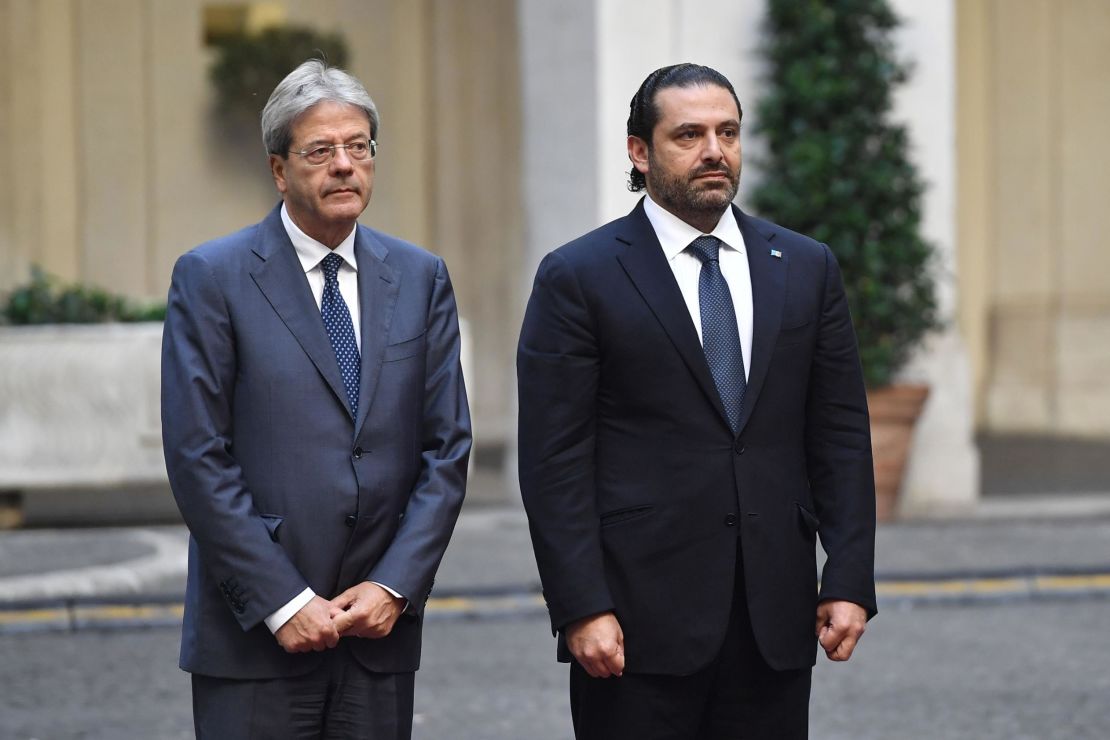Story highlights
Saudi crown prince accuses Iran of supplying missiles to Yemen's Houthi rebels
Iranian foreign minister warns of "Saudi Arabia's provocative measures in the region"
Supplying rebels in Yemen with missiles was a “direct military aggression by the Iranian regime,” Saudi Crown Prince Mohammed bin Salman bin Abdulaziz said Tuesday.
In his first direct statements regarding a thwarted missile strike on the Riyadh airport over the weekend, bin Salman laid the blame for the attempt at the feet of Iran’s government, saying it was “supplying its Houthi militias (in Yemen) with missiles.”
In comments reported by the state-run Saudi Press Agency, the crown prince told British Foreign Secretary Boris Johnson that Iran’s actions “may be considered an act of war against the kingdom.”
Saudi Arabia has waged a years-long military campaign in Yemen in support of the internationally recognized government that the Houthi rebels drove out of the capital, Sanaa.
The Iranian-backed Houthis have claimed responsibility for firing Saturday’s projectile at the King Khalid International Airport. The Saudi military was able to intercept the missile before it struck the Riyadh airport.
On Tuesday, Iranian Foreign Minister Mohammad Javad Zarif slammed the allegations that his country supplied the Houthis with missiles.
Zarif “warned of Saudi Arabia’s provocative measures in the region” and “rejected Riyadh’s dangerous allegations as a violation of the international laws and the UN Charter,” the semiofficial Fars News Agency reported.
Bin Salman’s remarks were the latest by the Saudi government to accuse Iran not only of being behind actions in Yemen but also criticizing Tehran over its purported behavior in Lebanon.
Iran sponsors Hezbollah, the Shiite militant and political group that holds tremendous sway in Lebanon’s Cabinet and as part of a pro-Syrian alliance in the Lebanese Parliament.
Announcing his resignation Saturday as Lebanon’s Prime Minister, Saad Hariri blamed Iran and Hezbollah for meddling in “the internal affairs of Arab countries.” Hariri, a Sunni politician with Saudi backing, made the announcement from Riyadh.
“Iran controls the region and the decision-making in both Syria and Iraq,” Hariri said. “I want to tell Iran and its followers that it will lose in its interventions in the internal affairs of Arab countries.”

For the Saudis, there would now be “no more distinction between Hezbollah and the Lebanese government,” Thamer al-Sabhan, Saudi minister for Gulf affairs, said Monday.
Hezbollah “has become a tool of death and destruction against Saudi Arabia and participates in all terrorist acts in the kingdom,” the minister said.
Saudi Arabia, therefore, will treat the Lebanese as “a government declaring war,” Sabhan told Al-Arabiya, the Saudi-backed broadcaster.
It was not clear what this statement would do to Saudi-Lebanese relations, but the minister said the ramifications “would be severe.
The United States considers Hezbollah a terrorist group, but its political wing is the most powerful bloc in Lebanon’s deeply divided coalition government, and several of its politicians are ministers.

A spokesman for the Saudi-led coalition fighting Houthi rebels in Yemen said Hezbollah militants smuggle weapons through Syria and then Iran before reaching Yemen by sea, even though the coalition has blockaded Yemen’s ports since 2015.
“It was an Iranian missile, launched by Hezbollah from territory occupied by the Houthis in Yemen,” Saudi Foreign Minister Adel al-Jubeir told CNN on Monday.
“Who are the Houthis, and what (is) Hezbollah? They are subsidies of the Iranian Revolutionary Guard,” Jubeir said.

